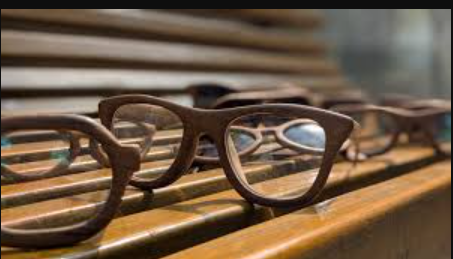In the heart of Dhaka’s South Merul Badda, a small workshop, Rodchoshma, is quietly reshaping Bangladesh’s accessory export narrative. Founded in early 2021, Rodchoshma has carved a niche in the eyewear market by eliminating plastic entirely and embracing handcrafted wooden frames. What began as a modest online page has now expanded to shipping 1,500-2,000 pieces internationally in recent months — to 18 countries including the US, UK, Australia and Germany.
From Simple Idea to Symbolic Craft
The journey of Rodchoshma began when founder Russel Zayedi, a filmmaker by training and creative at heart, asked a simple question: “Why can’t we make eyeglasses from wood?” During the pandemic-era lockdowns of 2020, he and optometrist-partner Khasru Sumon noted that while online commerce in Bangladesh was booming, stylish and sustainable eyewear options were scarce. They launched the brand on 1 September 2021, originally selling imported plastic frames.
But Russel wasn’t satisfied with just “another business.” He wanted identity, artistry and sustainability. So he shifted gears into wooden eyewear — sourcing premium Burma teak, cutting it into paper-thin layers, refining hinges, and spending nearly two years perfecting the craft. His first prototype cracked when he took it for a walk; the lenses popped out. Yet he persisted.
A Design Philosophy Rooted in Local Culture
Rodchoshma’s identity is deeply rooted in Bangladeshi heritage. Each frame is named after a bird — “Pecha” (owl), “Shalik” (myna), “Tuntuni” (tailorbird) — bridging urban users with rural nature. Russel explains in a TBS report that while city children might not recognise those birds anymore, they can remember the names and feel a connection.
The construction process speaks to commitment: teak wood blocks (which otherwise cost around Tk 22,000–25,000 per cubic foot) are repurposed; wood is boiled for six hours to ensure durability; each frame takes up to 22 days from raw plank to showroom-ready product. Total weight? Just 16–17 grams, lighter than many plastic frames.
Homegrown, Yet International
While Rodchoshma’s origins are local, its reach is global. Their eyewear ships to 18 countries including Canada, Spain, Turkey and the Netherlands. Around 80 % of buyers are expatriate Bangladeshis who recommend the brand abroad. Export shipments cost around Tk 4,000 by courier for half-kilogram packages, and the company produces around 150 internationally bound pairs each month.
Pricing in Bangladesh is positioned smartly: prescription wooden frames around Tk 1,300, sunglasses at Tk 1,500; premium custom designs (with engraving) up to Tk 5,000. For a handcrafted wooden product, this is both accessible locally and competitive internationally.
Building a Sustainable & Craft-Driven Narrative
Rodchoshma doesn’t just offer eyewear — it tells a story of sustainability, craft and identity. In a world saturated with plastic, the brand’s choice of natural material resonates with eco-conscious consumers. Even the business ethos reflects that: the six-person core team (supported by 11 overall) works on a craft basis, and the complete process — from boiling the teak to hand-finishing each frame — is done in house.
Challenges and Growth Ambitions
Despite the successes, the path hasn’t been easy. The two-year trial and error phase, sourcing quality teak, mastering precise woodworking for glasses rather than furniture — each step posed hurdles. Russel recounts the first wooden pair he walked in that broke within minutes. That frustration became fuel for iteration and improvement.
Looking ahead, Rodchoshma aims to scale further: plans to expand production to 4,000-5,000 pairs per month and establish a dedicated servicing and repair unit for global customers. Going from artisan scale to international brand scale will require investment in production, quality control, logistics and after-sales support.
Why This Matters for Bangladesh’s Manufacturing Landscape
Rodchoshma’s story is significant for multiple reasons:
-
It shows how Bangladeshi startups can compete globally through unique craft and branding, not just low-cost labour.
-
It highlights the strategic shift from purely garment exports to diversified manufacturing — in this case, high-value accessories.
-
It demonstrates how heritage, sustainability and storytelling can translate into global export appeal.
-
It encourages young entrepreneurs in Bangladesh to think local identity + global market.
What Buyers Are Saying
Users across Bangladesh and abroad praise the brand. One user, Raihan Chowdhury (an architect-turned-eyewear collector), said: “I sent my own design and they made it exactly the way I wanted. Getting such craftsmanship for Tk 4,000 is remarkable.”
Professional users mention the frames are lightweight, stylish and comfortable for all-day wear. The natural wood tone and minimal aesthetic appeal more than plastic or metal alternatives. The narrative of “wearable furniture” resonates.
Final Thoughts
In a market crowded with mass-produced eyewear, Rodchoshma stands out: a small Dhaka studio making handcrafted wooden frames that travel across continents. Their commitment to craft, culture and sustainable design is quiet but potent. As founder Russel puts it: “When something is born out of love, it always finds a place in people’s hearts.”For Bangladesh’s manufacturing and start-up ecosystem, Rodchoshma is not just a brand — it’s a case study. Unique product + local story + global reach = recipe for success. And for consumers who want more than just style, but meaning and ethical design, Rodchoshma delivers.
